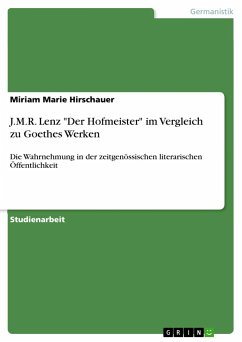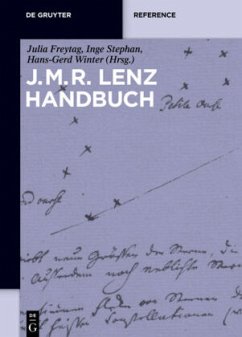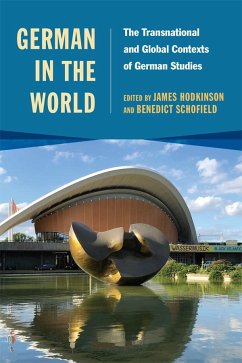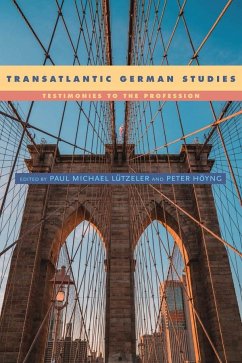Nicht lieferbar

Unpopular Virtues: The Scholarly Reception of J.M.R. Lenz
Versandkostenfrei!
Nicht lieferbar
An up-to-date assessment of the most important scholarly criticism on one of the enfants terribles of the German Sturm und Drang. In this study of the criticism of the most idiosyncratic voice of the German Sturm und Drang, the authors investigate why critics have so often failed to come to terms with Lenz's refusal to encourage the middle class and cater to its tastes. While many of Lenz's first reviewers found his work to be liberating, the mid-1770s soon brought a more conservative aesthetic, and he was virtually forgotten until after his death in 1792. With the rise of German classicism an...
An up-to-date assessment of the most important scholarly criticism on one of the enfants terribles of the German Sturm und Drang. In this study of the criticism of the most idiosyncratic voice of the German Sturm und Drang, the authors investigate why critics have so often failed to come to terms with Lenz's refusal to encourage the middle class and cater to its tastes. While many of Lenz's first reviewers found his work to be liberating, the mid-1770s soon brought a more conservative aesthetic, and he was virtually forgotten until after his death in 1792. With the rise of German classicism and romanticism, Lenz was viewed as a curiosity; his critique of contemporary society, his concern for the public welfare, and his open-textured and naturalistic style went unappreciated. And looming over every assessment of his work from the early nineteenth century on are Goethe's negative comments in Dichtung und Wahrheit: to speak of Lenz, even in our century, has always meant to deal with Goethe's opinion of him. Leidner and Wurst's study traces Lenz reception from the earliest reviews through the nineteenth century, modernism, National Socialism, New Criticism, the rediscovery of Lenz in both Germanies after 1968, and the changes in focus after the 1992 Lenz bicentennial.









